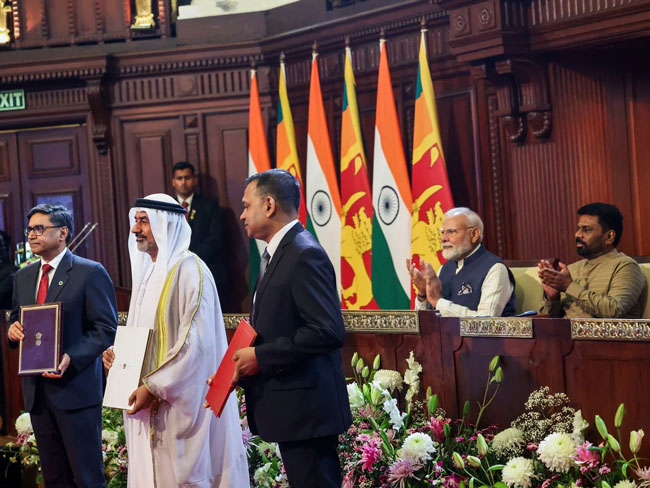Desk: India has once again showcased its diplomatic prowess in the Indian Ocean region, this time by strategically countering China’s influence in Sri Lanka. In a masterstroke move, India, the UAE, and Sri Lanka have announced a major energy hub project in the Sri Lankan city of Trincomalee. This initiative not only strengthens trilateral cooperation but also poses a significant challenge to China’s multi-billion-dollar projects in the region.
The landmark agreement was signed on Saturday during Indian Prime Minister Narendra Modi’s historic visit to Colombo. This was Modi’s first visit to Sri Lanka since Anura Kumara Dissanayake assumed the presidency. The tripartite agreement was signed by Indian Foreign Secretary Vikram Misri, Sri Lankan Energy Secretary Prof. KTM Udayanga Hemapala, and representatives from the UAE.
Why is Trincomalee important?
Trincomalee is a natural deep-water harbor and holds immense strategic value. It is now set to become a major regional energy hub. The project includes the development of a multi-product pipeline, an oil tank farm, and logistics infrastructure. Indian Oil’s Sri Lankan subsidiary already operates parts of the tank farm, giving India a head start in the area.
Commenting on the development, Foreign Secretary Vikram Misri said, “Trincomalee holds tremendous potential to become a regional center for energy cooperation. The UAE is India’s strategic energy partner, and their participation marks a historic first for this region.”
India’s Answer to China
This project emerges at a time when China is actively expanding its presence in Sri Lanka through initiatives like the Hambantota Port and a $3.2 billion oil refinery. India’s move, therefore, is not just an energy collaboration but a well-calculated geopolitical strategy aimed at counterbalancing China’s growing footprint in the region.




